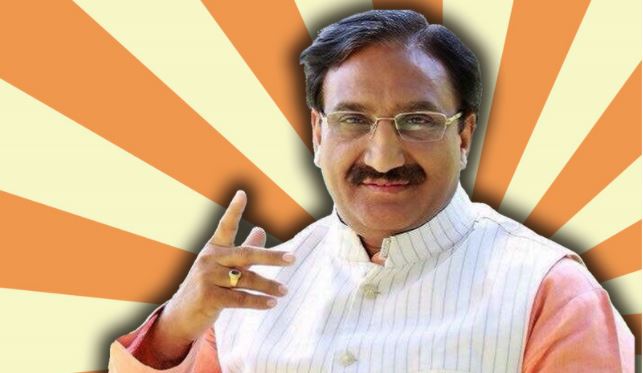India’s Education minister, Ramesh Pokhriyal, known by his pen name Nishank, has done much in the education sector in his tenure of one year and three months than many of his predecessors. Under his leadership, the government released the much awaited National Education Policy-2020. Although the document was under the pipeline since the last six years, it finally culminated under the leadership of Nishank. India needed an education minister who can work to remove the colonial, Marxist, and Nehruvian biases in Indian academia, and NEP would successfully do this.
The NEP has been widely accepted as one of the finest policy documents, and the people across the political spectrum including people such as Yogendra Yadav ended up praising it. The emphasis of education in Mother Tongue to end the intellectual slavery to British narrative of histroy, economics, and social science in a great leap in the positive direction.
“The way a child can express and understand herself in her own language, it will not be possible in any other language. We have a vision behind this approach,” he said on education in Mother Tongue. “Even UNESCO has said that primary education, as much as possible, should be in the mother tongue,” Pokhriyal added.
Moreover, when it came to cut down the CBSE syllabus, the ministry decided to cut down the chapters like Secularism through which students were being brainwashed against the religion of the majority.
The chapters “completely deleted” from the Class 11 Political Science syllabus include Federalism, Citizenship, Nationalism, and Secularism. From the Class 12 Political Science syllabus, the board has entirely removed “Security in the Contemporary World”, “Environment and Natural Resources”, “Social and New Social Movements in India”, and “Regional Aspirations”. Also, sections like “Planning Commission and Five-Year Plans” and “India’s Relations with its Neighbours: Pakistan, Bangladesh, Nepal, Sri Lanka, and Myanmar” now stand deleted for the current academic year.
Chapters relating to democratic rights and structure of the Indian Constitution have been clipped off the Class 9 curriculum for this year. Additionally, the class 10 curriculum has been lightened by deleting chapters on “Democracy and Diversity”, “Caste, Religion and Gender”, and “Challenges to Democracy”.
On the face of it, this might seem a small and temporary move. Nevertheless, many in India’s liberal circles seem to have foreseen what is headed their way, and are already crying foul over the ‘intentions’ of this government.
The Education minister announced the decision of the government to rationalise curriculum for students, and reduce the “course load” for them. What is intriguing, however, was that the minister went on to say that only the “core concepts” had been retained following the 30 percent rationalisation of syllabus.
On the matter of NEET and JEE, Nishank stood firm and made it clear that an academic year cannot be wasted due to politics of few parties and their student political wings. He also said that the “silent majority” of the students stand behind his decision.
“It pains to see that education is becoming politicised. I request my colleagues across the political spectrum to abide by the orders of the honourable Supreme Court. Leaving the politics aside, I would like to share that, a total of 7.41 lakh candidates out of 8.58 lakh appearing for JEE have downloaded admit cards. Only 332 candidates have requested for change of their centre cities, which are being considered positively. In reference to NEET, a total of 6.84 lakh candidates (out of a total of 15.97 lakh) have downloaded the admit cards in the first five hours,” he said in an interview with Hindustan Times.
When the students from leftist political outfits organized protests against CAA-NRC, the Minister of Education said, “I have said this earlier also that these autonomous institutions cannot be allowed to become political ‘adda’ (dens). Strong action will be initiated against people involved in such an attack.” On the other hand, previous Ministers of Education, even those in the Modi government like Smriti Irani and Prakash Javdekar, avoided any comments on student activism.
This shows that “Nishank”, being true to his name, does his work silently and speaks only when necessary. He is taking required steps to rectify the Colonial, Maxist and Nehruvian bias from Indian academia, and has succeeded so far in cutting down “non-core concepts’ like secularism, de-politicization of education and exams, and pushing for education in Mother Tongue.
